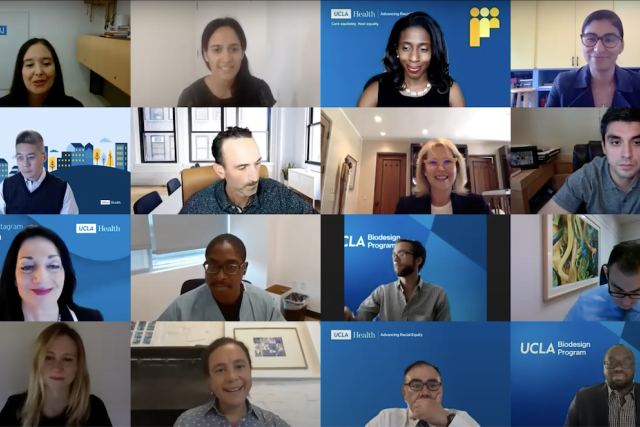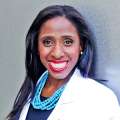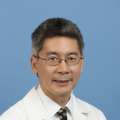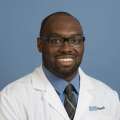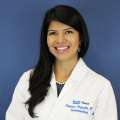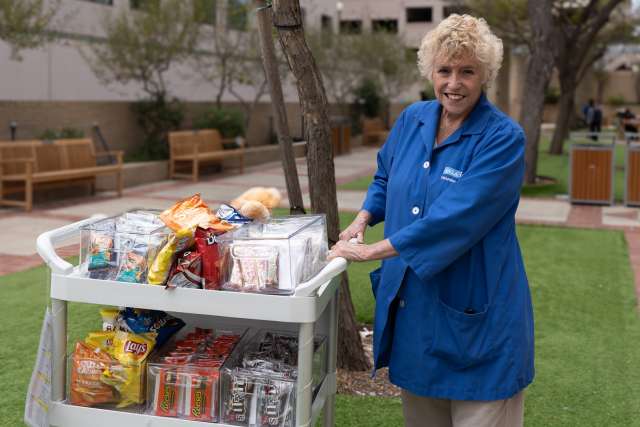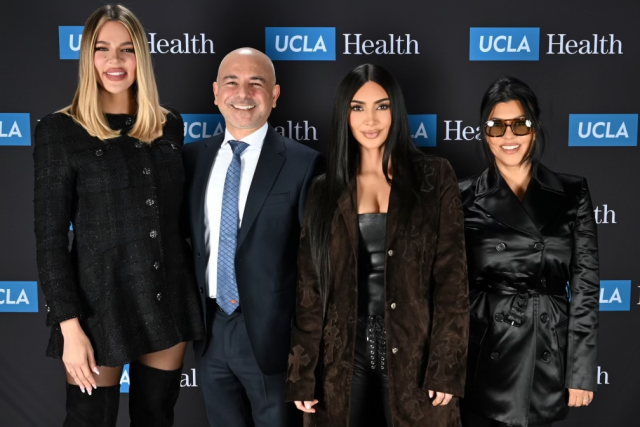“There have been twin pandemics in this country – COVID-19 and racial and ethnic inequity,” says Desert Horse-Grant, senior director of UCLA Health Research and Innovation and co-executive director of UCLA Biodesign.
She says though UCLA Health has championed health equity in many areas in the past, the events of 2020 proved that a recommitment to a culture of health equity, diversity and inclusion is essential.
On April 1, 2021 the UCLA Hospital and Clinic System launched the Health Equity Pitch Contest, a showcase of the important work advancing health equity by UCLA Health faculty, staff, students and community partners.
The contest, which is the second round of the UCLA Health Innovation Challenge, kicked off Minority Health Month, an observance which draws awareness to health inequities faced by racial and ethnic minorities.
“With commitment from leadership and Dr. Medell Briggs-Malonson as designated chief officer of Health Equity, Diversity and Inclusion in place, we have the accountability and support needed to fulfill this work,” Horse-Grant says. “All of us leaders have set personal goals for what we can do to advance health equity, and this track was one of my offerings.”
Health equity is a new category in the UCLA Health Innovation Challenge. Offered to the UCLA Health community, including patients, caregivers, volunteers and UCLA students, it provides opportunities and funding to tackle challenges in vulnerable populations. Out of 54 projects submitted, eight finalists and one winner were selected in the first round of judging prior to the pitch contest.
That winner, who received one of three $50,000 prizes, is Amanda Kosack, MD, Pediatrics Hospitalist at UCLA Health. She and her team, made up of 13 others, sought to improve bilingual access to pediatric Family-Centered Rounds (FCR) during COVID-19 and beyond.
Before the pandemic, FCR occurred at a patient’s bedside and included an interdisciplinary team, including family members. For Spanish-speaking families, pediatricians relied on in-person Spanish Equipment-Assisted Simultaneous Medical Interpretations.
Due to COVID-19 protocols such as physical distancing and increased visitor policies, communication with families was significantly disrupted.
“Spanish speakers comprise approximately 12% of patients or caregivers of patients admitted to the pediatric service at UCLA,” Dr. Kosack says. “Barriers to communication between family members and the medical team make these patients a vulnerable population in hospitals.”
Using new technology innovations, Dr. Kosack and project leads shifted to a virtual-only FCR, with easy-to-use simultaneous Spanish interpretation.
The team will use the funds to build additional infrastructure to support virtual FCR, including designating a portion to statistical analysis and qualitative research on the parent and patient experience.
Pitch contest awards
In the second round of judging, a diverse, multidisciplinary group of judges determined funding amounts for each of the remaining eight finalists after they participated in the pitch contest.
“Funding opportunities from foundations and government agencies like the National Institutes of Health identify great ideas by creating opportunities to convert ideas into an action plan,” says judge Eric Cheng, MD, MS, chief medical informatics officer, Neurology, UCLA Health. “The Innovation Challenge is a local version of that process.”
“COVID-19 Vaccine Volunteer Crew” and “Promoting Children's Health and Wellness throughout Los Angeles” were each awarded $50,000 prizes to fulfill their respective projects.
These two projects were “perfect cases of talented teams using their expertise to meet the health equity needs of the community,” says judge I. Obi Emeruwa, MD, MBA, Specialty Training and Advanced Research fellow physician in the Division of Pulmonary and Critical Care Medicine in the Department of Medicine at the David Geffen School of Medicine at UCLA.
“As we’ve heard over and over, COVID-19 has disproportionately affected minority communities, and those communities have had unequal access to vaccination. The COVID-19 vaccine administration volunteer project should be a top public health priority,” he says.
“Data shows many of the hardest-hit communities have the lowest proportion of those vaccinated,” says Chelsea Shover, PhD, assistant professor-in-residence at DGSOM, and project lead with a dozen others.
“As vaccine supply increases and more clinics launch pop-up and mobile options, the need for trained, reliable volunteers to augment the clinics' regular staff continues to grow,” she says.
The COVID-19 Vaccine Volunteer Crew Project will use the funding to hire dedicated staff to maintain and support the volunteer program, such as providing targeted recruitment for clinics that may need bilingual volunteers.
The project Promoting Children’s Health and Wellness in Los Angeles, submitted by Matthew Flesock and Charles Viana of UCLA Health Sound Body Sound Mind; Deviny Mo, of UCLA Health Sports Performance powered by EXOS and Erin Rice from the UCLA Health Integrative Medicine Collaborative, aims to strengthen the quality and reach of their physical education teacher training in under-resourced schools.
The UCLA Health Sound Body Sound Mind program is in more than 140 schools across Los Angeles. By implementing fitness resources and curricula in physical education, nutrition and mindfulness, the team hopes to equip teachers with tools to curb childhood obesity and encourage healthier lifestyles.
“It's a core value of our organization that children should have access to the opportunity to be healthy. Health is a right,” Flesock says.
The “Post-ICU Recovery Clinic” project submitted by Kristin Schwab, MD, pulmonologist and co-director of the Post-ICU Recovery Clinic at UCLA, and her team were awarded $20,000 to launch a patient navigator, or person designated to help expand access to uninsured patients and those outside of the UCLA Health system.
Recipients of the $15,000 award were:
- “AccessiHealth,” an app-based project and pipeline program created by Desiree Sanchez, MD, resident in the Department of Urology at UCLA and Abhishek Venkataramana, MD, a medical student at DGSOM.
- “Empowering the MLK Outpatient Lactation and Maternal Neonatal Wellness Clinic,” an effort to support new mothers with resources for themselves and their infants, submitted by Grace Deukmedjian, MD, pediatrician at UCLA Health and Martin Luther King Jr. Community Hospital; Asaiah Harville, an international board lactation consultant; and four others.
Recipients of the $5,000 award were:
- “COVID-19 Vaccination Uptake Amongst Persons Recently Released from Incarceration,” submitted by Liza Buchbinder, MD, PhD, internal medicine physician at UCLA Health and three others.
- “A Novel Education Approach for Latinos with Diabetes,” submitted by Vanessa Schmidt, MD, clinical instructor of medicine at DGSOM and two others.
- “Interactive Bilingual Smartphone Application for Health Education and Nutrition Services,” submitted by Vanessa Fernandez, nutritionist at the Venice Family Clinic.
Dr. Emeruwa says, “As a top-ranked health care institution, UCLA Health should be leading the charge” to improve the community.
“As a health organization whose mission is rooted in the Hippocratic Oath, we are called to do more than publish interesting papers – we are obligated to do no harm,” he says. “In that sense, we must ensure that our work not only generates knowledge, but actively addresses the disparities in our field.”
For Horse-Grant, this is just the beginning.
“We intend to follow these projects, let them incubate and, as a community, we want to do it again,” she says.
Learn more about the UCLA Health Innovation Challenge.
